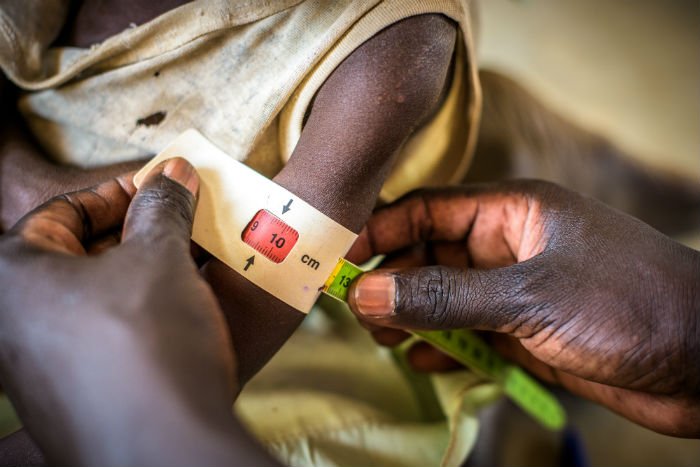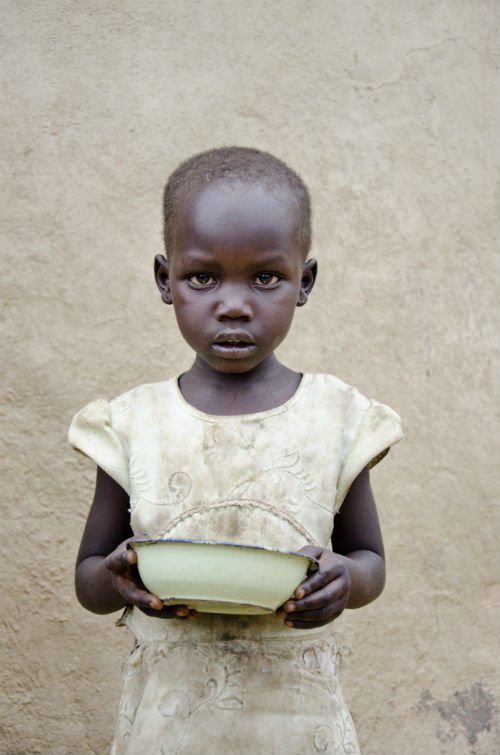Broken promises hurt. They can impact friendships, cause doubt and ruin trust. But usually, broken promises don’t leave you hungry.
For millions of children around the world, broken promises leave them hungry, unable to attend school and fulfil their life’s dreams.
When rains don’t come (or come too much) crops and livestock die – destroying the food on which many rural farming families across Africa, Latin America and the Pacific rely. This year’s El Niño is making things even worse: less rains, fewer crops, more hunger.
El Niño is a climate phenomenon, linked to a warming of ocean temperatures in the equatorial Pacific that is putting the lives, food security and livelihoods of millions of already vulnerable women, men and children at increased risk.
In dozens of countries, across 4 regions, World Vision is responding to the El Niño crisis.
In Zambia, where over 1 million are suffering the effects of drought-induced crop loss and hunger, World Vision is distributing maize across 4 districts, reaching nearly 24,000 of the most vulnerable. Partnering with the World Food Programme to run cash for work programmes, with the Pan-American Health Organization to provide therapeutic feeding and with UNICEF to improve community wells, World Vision Honduras is mitigating the effects of drought. Despite this work, there is much more to do, and not enough funding to do it.

In these devastating circumstances, governments and global leaders must step up their efforts to provide meals at schools or to families who prepare for the next climate-change induced disaster. Everything from gardening with better seeds, to catching rainwater, from reforestation to irrigation helps in the long-term and is rewarded with food for now. These are the promises leaders must make: to assist with food for today and livelihoods for tomorrow.
This is what is supposed to happen when leaders have strong wills, sound policies and sufficient funding; when donors have deep pockets and efficient funding pipelines; and when aid agencies have effective programmes.
This is not what is happening.
Devastatingly, natural and man-made disasters are too big and happening too often. Leaders are overwhelmed and the funding pipeline is at the breaking point.
Breaks in funding pipelines have resulted in underfunded food assistance programmes – meaning the promised food never arrived or the resilience interventions were never implemented.
World Vision’s new report: ‘When there is no food assistance’ presents a snapshot of stories from Eastern Democratic Republic of Congo (DRC), Niger and Somalia, where families were promised help that never arrived.
A school girl in DRC lamented, “When there is no food at school, I miss the food and being able to learn. We will not be able to move forward.”

Today, World Vision is sharing these stories of broken promises with the European Parliament (Heidi Hautala, hosting member of the European Parliament (EP) and member of the Development Committee and Linda McAvan, Chair of the EP Development Committee), the European Commission (DG DEVCO and DG ECHO), the European External Action Service, the World Food Programme and aid agencies such as Care International, Oxfam and Save the Children, in the hopes of mending broken promises, pipelines and dreams.
World Vision’s report calls for a better response to humanitarian appeals linked to El Niño related crises. It also calls for governments and donors to urgently pledge funds to the $100 billion a year (by 2020) Green Climate Fund and to disperse the funds as quickly as possible to help countries impacted by climate change.
If the European Union and all actors step up, we can mend broken promises, pipelines and dreams. As humanitarians, we owe it to the most vulnerable to fund emergency appeals, provide food assistance, build resilience, save lives and protect livelihoods.
And as human beings, we must keep our promises.
Key facts:
• At last count 795 million people around the world, or one in nine, regularly don’t have enough nutritious food to eat each day.
• Each year, poor nutrition is an underlying cause of 2.8 million (45%) deaths in children under 5, or one in six children in developing countries. Roughly 100 million children are underweight. Almost 100 million of the most vulnerable global citizens require food assistance from the international community each year to ensure they have something to eat during a difficult time in their lives.
• In 2015, WFP, the world’s largest UN agency fighting hunger, estimated its funding requirements at US $8.6 billion. As of November 3, 2015, the total funding it had received was US$3.8 billion; a funding gap of 55%.
Learn more by downloading World Vision’s new report: ‘When there is no food assistance.’
Join the conversation with World Vision, the EU and partners by following @WorldVisionEU on twitter and using #hungerfree.